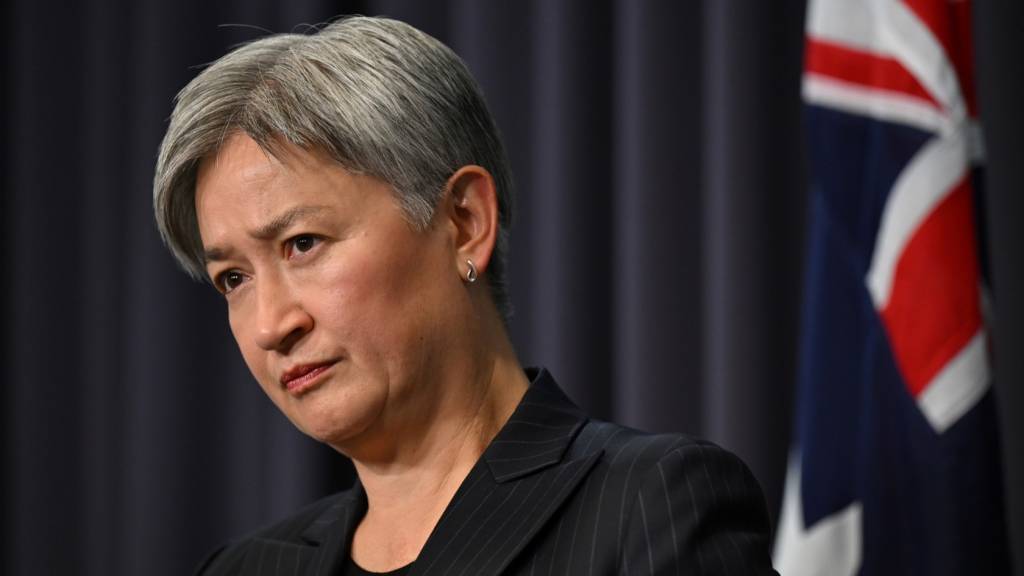
Australian Foreign Affairs Minister Penny Wong is set to meet with US Secretary of State Marco Rubio in Washington this week, amid ongoing discussions about Australia’s defence spending. The meeting, part of the Quad foreign ministers’ summit, highlights the strategic importance of the Indo-Pacific region and the evolving security dynamics that both nations face.
Wong’s visit comes as the Australian government faces increasing pressure from the United States to boost its defence budget. The Trump administration has urged Australia to increase its defence expenditure to 3.5% of GDP, a suggestion that Prime Minister Anthony Albanese has been reluctant to embrace. The discussions will also touch upon the contentious issue of securing an exemption from tariffs imposed during Donald Trump’s presidency.
Strategic Importance of the Quad
The Quad meeting, which brings together foreign ministers from the United States, Australia, Japan, and India, underscores the collaborative efforts to maintain a “free, open, and secure Indo-Pacific,” as stated by the US State Department. This is the second such meeting in six months, reflecting the urgency and significance of the alliance in addressing regional security challenges.
In a statement before her departure, Wong emphasized the alliance’s role in regional stability: “The United States is our closest ally and principal strategic partner. Our alliance contributes to the peace, prosperity, and stability of our countries and the region we share. We will continue to work together to further our important economic and security partnership and advance our mutual interests.”
Debate Over Defence Spending
Defence spending remains a contentious issue within Australian politics. Shadow Defence Minister Angus Taylor has criticized the Albanese government for not heeding the advice from its defence strategic review, arguing that current spending levels are insufficient for maintaining regional peace through deterrence.
“Forget the pressure being put on by the United States,” Taylor stated. “If we are to play the role we need to play in ensuring we have peace through deterrence in our region, the spending is too low, and the government’s plan demonstrates that.”
Meanwhile, Home Affairs Minister Tony Burke has defended the government’s approach, highlighting the importance of capability over expenditure. “Our guiding principle in all of this is, what do you have to do to be able to keep Australians safe? And so we start with the capability. We don’t start with the dollars,” Burke said.
International Reactions and Implications
The call for increased defence spending is not without its critics. Chinese ambassador to Australia Xiao Qian has warned that such actions could undermine economic development and impose a “heavy fiscal burden” on Australia’s budget. This sentiment is echoed by a report from the Australian Strategic Policy Institute, which calls for a focus on securing sovereign research amidst foreign interference threats.
As discussions continue, the potential impact of Trump-era tariffs on inflation remains a concern. The Nine papers have noted that these tariffs pose a significant risk to inflation, comparable to the supply chain disruptions experienced during the COVID-19 pandemic.
Political Maneuvering in Australia
In addition to defence spending, the political landscape in Australia is witnessing shifts. Shadow Defence Minister Angus Taylor has not ruled out another bid for leadership of the Liberal Party, following his narrow loss to Sussan Ley. This internal dynamic highlights ongoing debates within the party, particularly concerning female representation and the use of quotas.
Elsewhere, the Coalition is reportedly adopting a more empathetic stance on immigration, moving away from the harsh rhetoric of previous leadership. This shift is part of broader efforts to address the challenges faced by migrants and to reform policies perceived as punitive.
As Penny Wong engages with her international counterparts in Washington, the outcomes of these discussions will likely influence Australia’s strategic direction and its role within the Quad alliance. The implications for regional security, economic stability, and domestic politics are profound, setting the stage for future developments in Australia’s foreign and defence policy.







